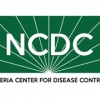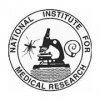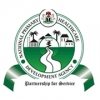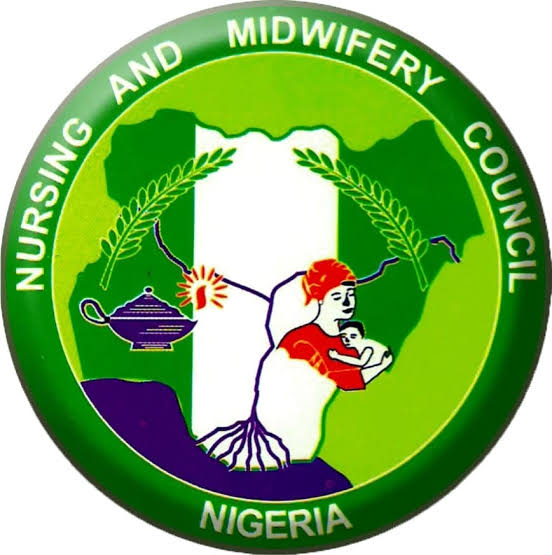HIGHLIGHTS OF RESPONSE BY HONOURABLE MINISTER OF HEALTH, DR. OSAGIE EHANIRE TO QUESTIONS FROM JOURNALISTS DURING THE PRESIDENTIAL TASK FORCE ON COVID-19 PRESS BRIEFING HELD ON MONDAY, 6TH JULY, 2020
On Criteria for testing people who are suspected of having COVID-19 infection:
The Honourable Minister of Health, Dr. OsagieEhaire explained that a target of 2 million tests was announced some time ago, and that “2 million is equal to specifically 1 percent of the populationit was not just a random figure and that is also what is generally recommended that if you can test 1 percent of your population, then you actually met a certain mission.”
Explaining further, Dr. Ehanire stated that “At the very beginning when we didn’t have community transmission and we had only random cases and very few test kits, very few reagents, we had targeted persons who have travelled, who had just come from abroad and show symptoms, because not everybody who came from abroad were tested. They were at home and then if they show symptoms, were tested, and then, we traced their contacts who we observed that showed any symptoms.
But then, that has changed, we are now in the phase of community transmission. It means that this is now like an indigenous disease and many people are handing it over to each other. The imported cases are now very few, they are now in the minority and the criteria have changed. Now the first thing is that anyone who have the symptoms, and we have said that the symptoms are a mix of fever, cough, loss of sense of taste or smell and then above all, the breathlessness. Now anybody who has those symptoms goes to a testing site and will definitely be tested. If you have also been in contact with someone like that, let’s just say you live in the same household with that person, they are also eligible to be tested.”
He stated that those who came from abroad were tested on arrival from foreign countries. He disclosed that we have more test kits and reagents now and the criteria have undergone reset but testing is still to be targeted because “the fact that we are testing 2 million does not mean that we are just randomly testing, there still have to be certain criteria. We must certainly be able to have certain reasons to suspect that they have contracted these diseases so that we don’t waste test kits. Part of what has been studied here, it is the yield; if you test a hundred, how many do you really get, some countries get 10 percent, some get 15, some 30 percent and in fact one country had 50 percent or more. Some 6 percent, so it depends on how efficiently you are using your kits. That’s the question you’ll be asking when you want to go for testing or you have any reason to go for testing.”
On health workers in Calabar who are divided in which of the divide they support – FMOH or CRSG:
On the issue of health workers in Calabar being politicized, the Honourable Minister admonished that politics should be left out of it. “There should be no politics in responding to a disease particularly one as infectious and contagious as COVID-19. So, we want to remove it from the realm of politics, religion and everything else and face this disease that is a threat to this country. We know at one time, that the health workers complained that they were not seeing progress in certain States’ response and it is part of what has led to strikes in various areas, there were strikes here and there; for some, it was over pay; some were over PPEs and so on. The response of the Government was to make sure that first, everyone has the PPEs they need, and you have your pay as agreed and also your trainings, instructions and if possible your targets and that should solve the problem and take the entire COVID-19 response away from politics.”
On Madagascar herbs:
With regards to the ongoing further research on Madagascar herbs, Dr. Ehanire pointed out that the research is still on and that “if you are conducting research, you don’t just go and say give me money and they give it to you. You have to make a case for it, you have to prepare a proposal to convince those who are going to give you the grant; you have to get a grant, that what you are going to do is reasonable, useful and then the path that you are going to take is access-able path. That’s why you have a Health Research Committee in Ministry of Health, that shows that what you want to do is worth it and then the probable cost of it will be examined by a panel and before anyone considers giving you a grant. There is also an Ethics Committee that looks at it whether what you are going to do is good or dangerous or not because there are also dangerous research that goes on, that produces terrible things, which particularly they use for war.
In medicine, there is also ethics that will examine, particularly when you are doing your clinical trials; whether you are not endangering the lives of people who are volunteering for clinical trials, so all those things have to be put into considerations before anybody gives you money.
Between last Thursday and today, it hasn’t taken place, but it’s going on, that they present a case for it and then the PTF has to put it forward to Research and Development which is one of the pillars of the PTF’ response.”
On difference between rejection and referral:
Dr. Ehanire noted that there is a good difference between rejection and referral, which he knows, by virtue of being a Medical doctor. He warned against rejection of patients for any reason. “When someone comes to you, you examine them and if you know that you do not have the capacity or knowledge to treat them, you refer them, usually you give them a note telling them where to go to and who to go to. The referral is to a person to a doctor or if possible or at least to a facility. But if you look at somebody through the window and you say no, no we don’t want, we don’t do that, then that is rejection, because you have not given them a chance at all, sometimes you have not even asked them what they are there for and you are telling them to go away, that’s rejection. And that’s what we do not like; everybody has a chance and the right to present their case and to be heard and then for them to be examined and if it looks like their lives is in danger at that moment, you will have to take them out of danger, if they are breathless at that moment, you must give them oxygen, if you have and if you do not, you call an ambulance for them or seek an ambulance, you don’t just tell them to go away.”
There are ambulances in many places and Federal Ministry of Health is working now on creating an Emergency Medical and Ambulance System where you can call to take persons like that; you don’t just leave them to their fate and some of them may not even move a few steps from the hospital before they give up. So, we do not want rejections of patients, citizens are entitled to their lives and all of us are also obliged to support people who are sick, particularly if we are health workers, we have no excuse for not rendering help.”
On the 20 high burdened Local Government Areas:
The Health Minister said he would leave that to the National Coordinator to respond to. He however gave a brief insight saying “It is a calculation based on certain criteria of those that have the most. It’s a strategic tool that is used to know, where do I focus my resources, where do I focus attention, which place has the most problems, where do I put resources into. So, that can change because the number of cases in one LG can overtake the others. So, that it is not a fixed number, and also the criteria sometimes are variable depending on how you examine the situation. COVID-19 is also changing all the time; we also looking at what is happening in other countries, the results we have in countries are constantly adjusting.”
Compilation by Blessing Egbo
Signed.
Olujimi Oyetomi,
Director, Information, Media & Public Relations.






